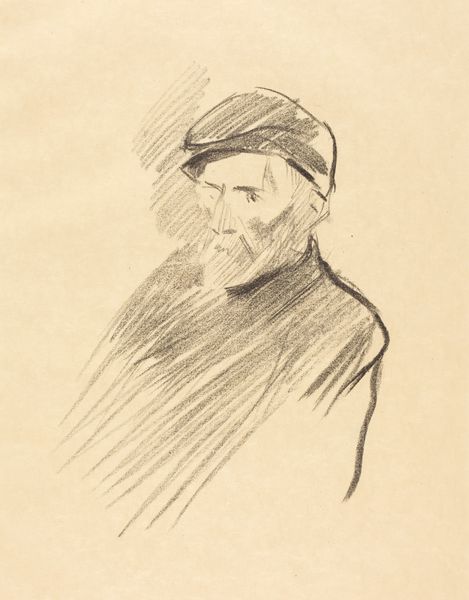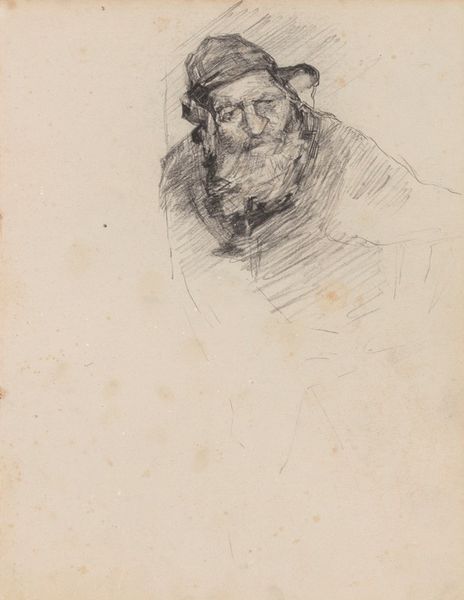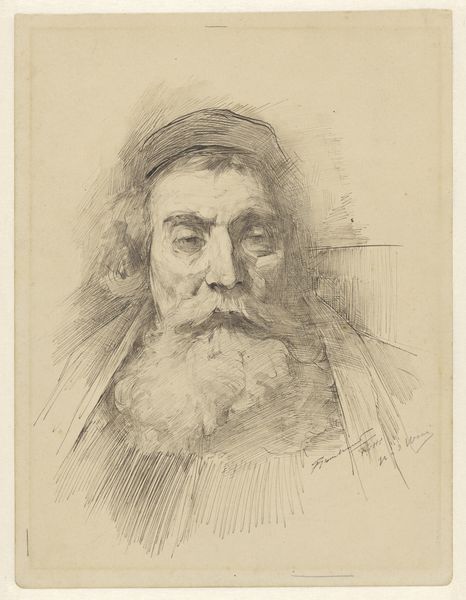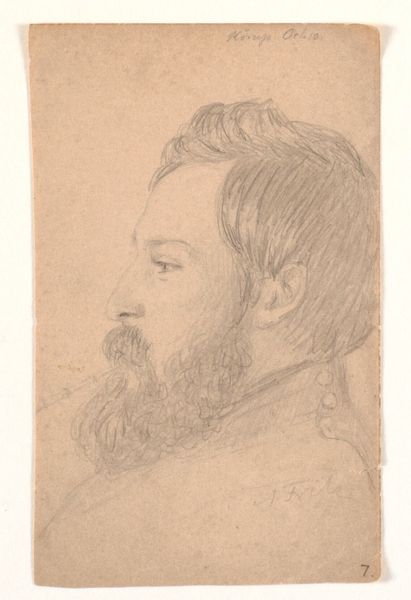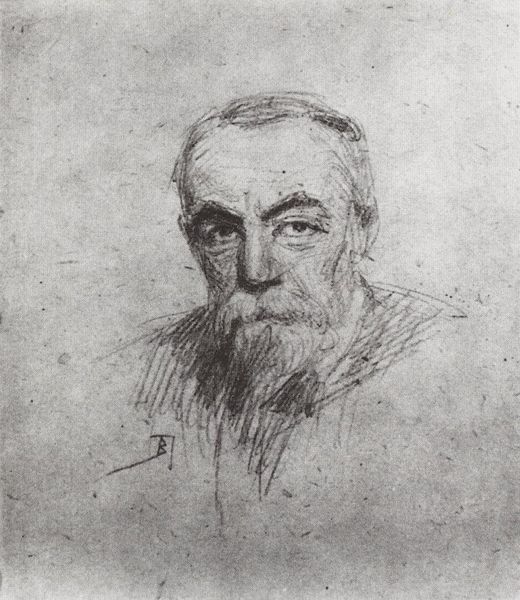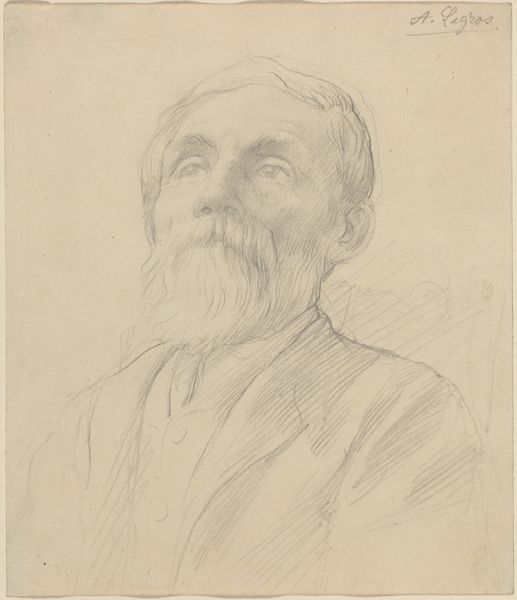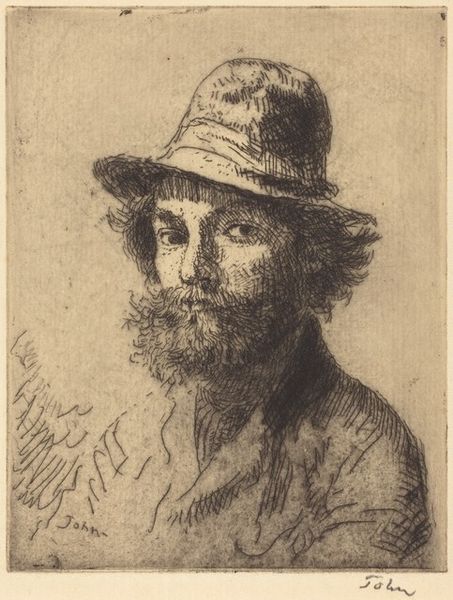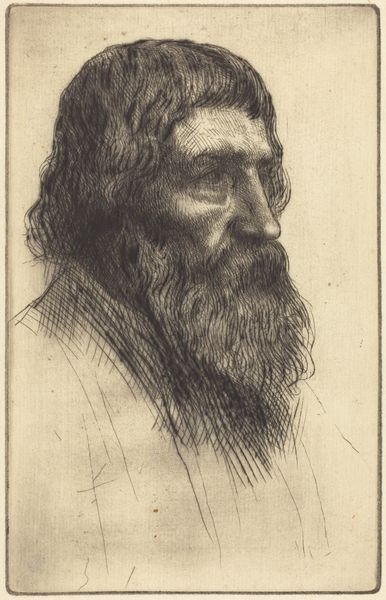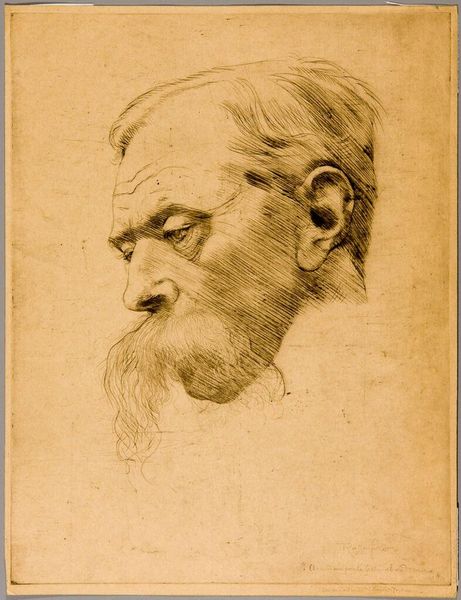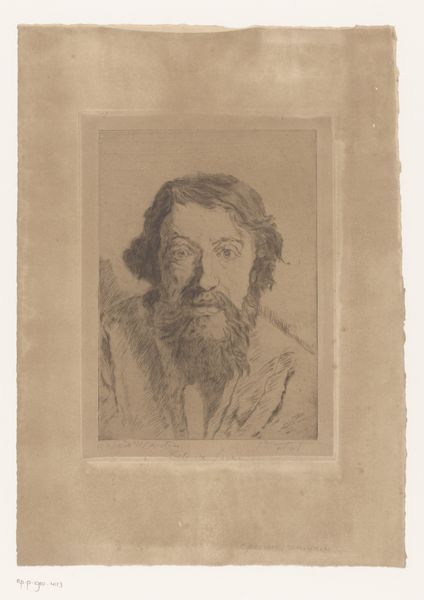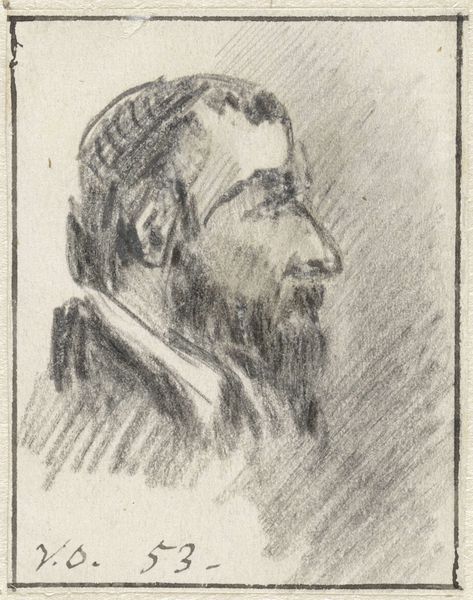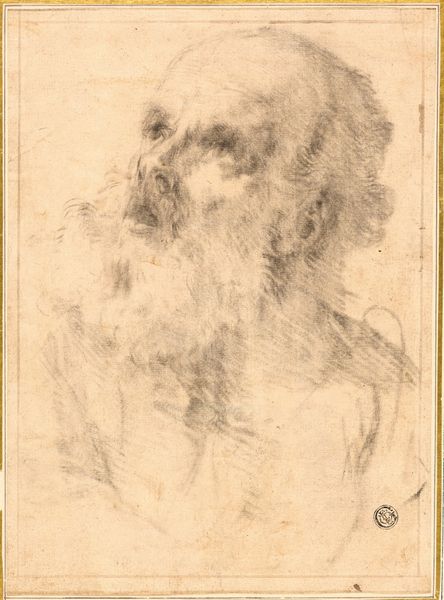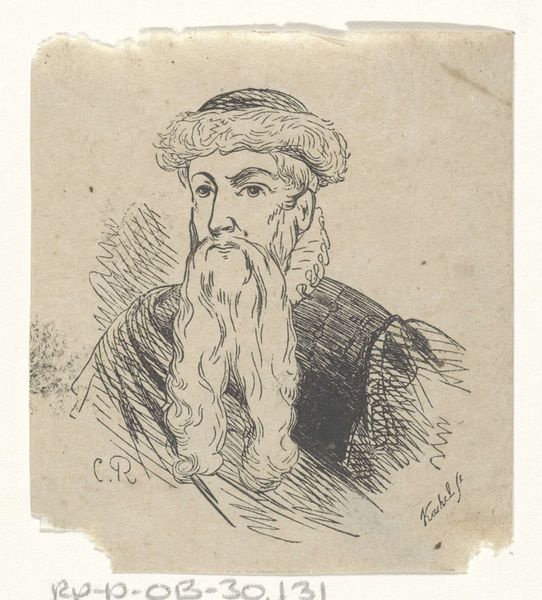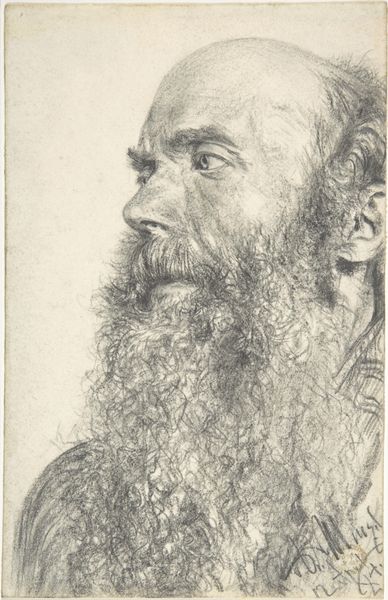
Copyright: Public Domain: Artvee
Editor: This is a pencil drawing by Paul Gauguin, created around 1878. It’s titled “Henri Gauguin, l’oncle de l’artiste,” which means “Henri Gauguin, the artist’s uncle.” The sketchy lines give the portrait a raw, unfinished feel. What do you see in this piece? Curator: I see a deliberate, though seemingly spontaneous, rendering of a cultural memory. Gauguin is not merely depicting his uncle, he's capturing an essence. Notice how the shading around the eyes gives them a weighted, almost melancholic feel. This reminds us that portraits, particularly within families, carry the burden of history and expectation. The beard becomes almost symbolic of inherited wisdom or perhaps even societal burdens. Editor: That's a fascinating point. Do you think Gauguin's later interest in symbolism in his paintings might already be present in this early portrait? Curator: Absolutely. While the drawing is more literal than his later paintings, we can see Gauguin already grappling with how to imbue an image with more than just surface-level representation. Consider the absence of background detail, forcing the viewer to focus solely on the face – a face carrying untold stories. It begs the question, what was Gauguin trying to remember, or perhaps forget, about his family history? Editor: So the sketch itself functions almost like a mnemonic device? Curator: Precisely. Visual images act as conduits to cultural memory, linking us to past narratives and shaping our understanding of identity and lineage. The fact that he chose to portray his uncle suggests a significant relationship or influence. Do you find that the uncle's gaze appears to hold secrets? Editor: It does, a sense of looking inward, almost troubled. It's more than just a likeness. It’s been fascinating to consider the drawing not just as a portrait, but as a coded family artifact. Curator: And in decoding these images, we gain a deeper appreciation of their enduring power. Every line, every shadow, holds a piece of the puzzle of our shared human experience.
Comments
No comments
Be the first to comment and join the conversation on the ultimate creative platform.
